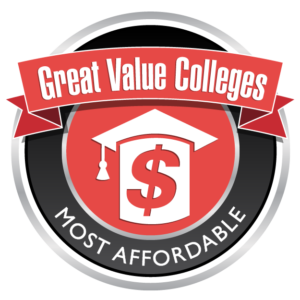Are you interested in the state of the economy? Do you excel at crunching numbers? Then, a bachelor’s degree in economics may be the ticket to the career of your dreams. This undergraduate credential can prepare you for further study in a graduate economics program or qualify you for entry-level positions in this well-established field. In this ranking, we explore the top 50 best bachelor’s in economics programs.
Types of degrees covered in this ranking include the following:
- Online Bachelor of Arts (BA) in Economics
- Online Bachelor of Science (BS) in Economics
- Online Bachelor of Business Administration (BBA): Economics
Are you undecided as to what major to pursue? Check out our article 5 of the Easiest Online Bachelor’s Degrees.
Methodology
Tuition
- Net Price Below $10,000: 4 points
- Net Price Below $15,000: 3 points
- Net Price Below $20,000: 2 points
- Net Price Below $25,000: 1 point
Student to Faculty Ratio
- Less than 20:1: 1 point
- Less than 15: 1: 2 points
- Less than 10: 1: 3 points
Return on Investment (ROI) According to Payscale.com
- Top 500: 1 point
- Top 300: 2 points
- Top 150: 3 points
Student Support Network (faculty mentors/advisors, writing/technology support, etc.)— 1 point per item
Concentrations/Specializations – 1 point per item
Accreditation (School-Wide and Program-Specific) – 1 point per item
Campus Diversity Support Network – 1 point per item
“Wow” Factor – 1 point (anything that would mark a program as unique. Special qualities that make a program “stand out from the crowd”)
Ranking the Top Bachelor of Economics Degree Programs
Our search for the top economics bachelor’s programs began with an initial pool of 165 programs with tuition costs of less than $20,000 annually. We then applied an ROI filter, eliminating programs with ROI rankings of over 600. Finally, we applied the rating and ranking methodology above. In cases of a tie, the more affordable bachelor’s in economics program received the higher ranking.
#50—University of Toledo
Toledo, Ohio
Bachelor’s in Economics
Website
Student to Faculty Ratio: 21:1
Undergraduate Enrollment: 16,194
SAT/ACT Score Requirement: 830-910/15-16
Points: 10
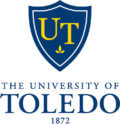
The University of Toledo offers a bachelor of economics degree program that emphasizes undergraduate research. An optional concentration in Environmental Economics is available. This four-year program requires core courses such as Principles of Macroeconomics, Introduction to Econometrics, and Intermediate Microeconomic Theory. Students pursuing the Environmental Economics concentration will take additional classes like Natural Resource Economics, Applied Environmental Economics, and Energy Economics. The University of Toledo has been recognized by U.S. News & World Report as a top national university. It is accredited by The Higher Learning Commission to award this economics bachelor’s degree.
Net Price: $16,588
#49—Worcester State University
Worcester, Massachusetts
Economics BS
Website
Student to Faculty Ratio: 17:1
Undergraduate Enrollment: 5,495
SAT/ACT Score Requirement: Varies
Points: 10

The bachelor’s economics degree from Worcester State University is a Bachelor of Science in Economics. Core courses required for the major include Introduction to Microeconomics, Intermediate Macroeconomics, Introduction to Econometrics, and Introduction to Mathematical Economics, for instance. Additional classes comprising the curriculum for the program include Financial Markets and Institutions, Investment Analysis, Economic Development, and International Finance, for example. Worcester State is accredited by the New England Commission of Higher Education to award this undergraduate degree in economics. U.S. News & World Report has recognized the school as a leading regional university in the North and ranked it among the top 35 public schools in the nation.
Net Price: $15,458
#48—Wichita State University
Wichita, Kansas
Economics BA
Website
Student to Faculty Ratio: 20:1
Undergraduate Enrollment: 12,398
SAT/ACT Score Requirement: 1080/21
Points: 10

Wichita State University offers a Bachelor of Arts in Economics degree from its Fairmount College of Liberal Arts and Sciences. Students enrolled in the program will take core courses such as Introductory Business Statistics, Principles of Microeconomics, and Business Calculus, for example. Additional course titles associated with the degree include Statistical Software Applications for Business, Intermediate Macroeconomics, Business Software: Excel, and more. A minor in economics program is also available. Wichita State is accredited by the Higher Learning Commission to award this baccalaureate degree in economics. U.S. News & World Report has identified the school as a top national university.
Net Price: $14,256
#47—Touro College
New York, New York
Bachelor’s in Economics
Website
Student to Faculty Ratio: 11:1
Undergraduate Enrollment: 6,426
SAT/ACT Score Requirement: Varies
Points: 11
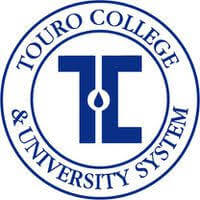
Touro College offers its bachelor of economics degree from the Lander College of Arts & Sciences. The curriculum for the program features a business core, including classes like Statistics for Social Science Majors, Principles of Management, and Computer Concepts with Business Applications, for instance. Major-specific classes include titles like Topics in Economics, Corporate Finance, Comparative Economic Systems, and Urban Economics. Touro College is accredited by the Middle States Commission on Higher Education to award this bachelor’s in economics credential. U.S. News & World Report has recognized the college as one of the leading regional universities in the North.
Net Price: $19,643
#46—Texas Tech University
Lubbock, Texas
Bachelor’s in Economics
Website
Student to Faculty Ratio: 20:1
Undergraduate Enrollment: 30,737
SAT/ACT Score Requirement: Varies (1180-1290/24-27)
Points: 11

The bachelor’s in economics program from Texas Tech University is a comprehensive 120-credit hour Bachelor of Arts program. The curriculum for the program features core courses such as Principles of Economics, Intermediate Economic Theory, and Intermediate Macroeconomics, for instance. Additional classes required for the degree include Introduction to Statistics with Application to Business, Development of Economic Doctrines, and Texas Politics and Topics. Texas Tech is accredited by the Southern Association of Colleges and Schools Commission on Colleges to award this undergraduate degree in economics. U.S. News & World Report has recognized the school as a leading national university and ranked it among the top 100 public schools in the country.
Net Price: $15,531
#45—Park University
Parkville, Missouri
Economics BS
Website
Student to Faculty Ratio: 15:1
Undergraduate Enrollment: 9,861
SAT/ACT Score Requirement: 940/20
Points: 11
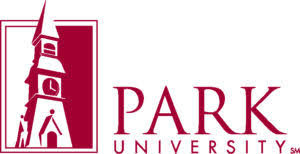
The economics bachelor’s option from Park University is a Bachelor of Science program requiring 120 credit hours of study. Students must fulfill 77 of these credit hours in the economics major by taking courses such as Money, Credit, and Banking; Labor Economics; International Trade and Finance; and Managerial Economics. A two-part senior comprehensive examination is also required. The university also offers a minor in economics as well as dual major opportunities. Graduates of the bachelor’s program are prepared for careers as financial analysts, accountants, business reporters, and economic consultants. The Higher Learning Commission has accredited Park University to award this undergraduate economics credential. U.S. News & World Report has placed the school among the top regional universities in the Midwest.
Net Price: $15,359
#44—California State University—East Bay
Hayward, California
BS in Economics
Website
Student to Faculty Ratio: 27:1
Undergraduate Enrollment: 13,474
SAT/ACT Score Requirement: Varies
Points: 11
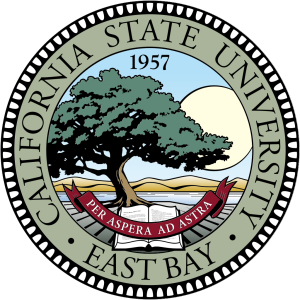
The bachelor of economics degree program from California State University- East Bay is a comprehensive 120-credit hour Bachelor of Science in Economics. Major courses required for the degree include Elements of Statistics and Probability, Quantitative Methods for Economists, and Mathematics for Business With Calculus, for instance. Students enrolled in the program will also fulfill an upper-division core, consisting of classes like Game Theory; Money, Banking, and Financial Intermediaries; and Introduction to Econometrics. Elective offerings include titles such as Environmental Economics, Issues in Economic Analysis, Introduction to Industrial Organization, and more. The WASC Senior College and University Commission has accredited Cal State- East Bay to award this economics credential at the undergraduate level. U.S. News & World Report has identified the school as one of the best regional universities in the West.
Net Price: $11,422
#43—Salisbury University
Salisbury, Maryland
BA in Economics
Website
Student to Faculty Ratio: 16:1
Undergraduate Enrollment: 7,782
SAT/ACT Score Requirement: Varies
Points: 12

The bachelor’s in economics degree from Salisbury University is a BA option offered through the Perdue School of Business and the Economics and Finance Department. Requirements for the major include course titles like Modern Statistics with Computer Analysis, Econometrics, and Quantitative Economics, for example. Enrolled students will also choose from elective offerings like Monetary Policy and the U.S. Economy, Public Sector Economics, The Economics of Voluntary Exchange, and Financial Institutions and Markets. Directed study opportunities are available. Salisbury University is accredited by the Middle States Commission on Higher Education to award this undergraduate credential in economics. A leading regional university (North), the school has been ranked among the top 70 best value schools and the top 25 public schools nationwide.
Net Price: $18,163
#42—University of Akron
Akron, Ohio
Economics BA
Website
Student to Faculty Ratio: 18:1
Undergraduate Enrollment: 16,872
SAT/ACT Score Requirement: Varies
Points: 12
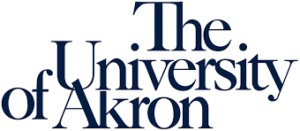
The BA in Economics program from the University of Akron provides students with a strong liberal arts foundation. The curriculum emphasizes real-world application of skills and includes core courses like Introduction to Economics, Principles of Microeconomics, and Principles of Macroeconomics. Students will also take more advanced courses in economics such as Industrial Organization and Public Policy, Economics of the Public Sector, and Economics of Natural Resources and the Environment, for instance. Internship opportunities are also available, and a senior project in economics is required. In addition to the BA in Economics, the University of Akron also offers a BS in Labor Economics. The Higher Learning Commission has accredited the school to award these bachelor’s in economics degrees. U.S. News & World Report has recognized the school as a top national university.
Net Price: $16,269
#41—Southern Illinois University- Edwardsville
Edwardsville, Illinois
Bachelor of Economics
Website
Student to Faculty Ratio: 19:1
Undergraduate Enrollment: 11,402
SAT/ACT Score Requirement: Varies
Points: 12

Southern Illinois University- Edwardsville offers both a BA and a BS in Economics from its Department of Economics and Finance. Sample course titles comprising the curriculum for this undergraduate offering include Statistical Analysis for Business Decisions, Business Forecasting, and Intermediate Microeconomic Theory. The university also offers a minor in economics. Southern Illinois University- Edwardsville is accredited by the Higher Learning Commission to award this baccalaureate degree in economics. U.S. News & World Report has recognized the school as a top national university.
Net Price: $13,773
#40—California State University-San Marcos
San Marcos, California
Bachelor of Economics
Website
Student to Faculty Ratio: 26:1
Undergraduate Enrollment: 14,615
SAT/ACT Score Requirement: Varies
Points: 12
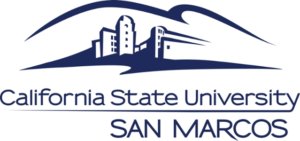
California State University-San Marcos offers a comprehensive 120-credit hour bachelor of economics degree program. This program requires that students take a number of core courses, including Probability Modeling and Statistical Inference, Econometrics, Principles of Microeconomics, and Intermediate Macroeconomic Theory. The program prepares graduates for further study in an economics master’s program as well as for careers in business, journalism, banking, academia, and more. Cal State- San Marcos is accredited by the WASC Senior College and University Commission to award this bachelor’s economics credential. U.S. News & World Report has ranked the school among the top 100 regional universities in the West and the top 35 public schools nationwide.
Net Price: $12,614
#39—Texas A&M- Corpus Christi
Corpus Christi, Texas
BBA in Economics
Website
Student to Faculty Ratio: 23:1
Undergraduate Enrollment: 10,170
SAT/ACT Score Requirement: Varies
Points: 12

The economics bachelor’s option from Texas A&M- Corpus Christi is a Bachelor of Business Administration degree with a concentration in Economics. The curriculum is comprised of a business core, featuring classes such as Behavior in Organizations, Communicating in Business, Management Information Systems, and Financial Management, for example. Students will also take classes in the economics concentration such as Labor Economics, Money and Banking, Managerial Economics, and more. Opportunities for internships and independent study are available. Texas A&M- Corpus Christi is accredited by the Southern Association of Colleges and Schools Commission on Colleges to award this bachelor of economics degree. U.S. News & World Report has identified the school as a top national university.
Net Price: $11,381
#38—California State University-Fullerton
Fullerton, California
BA in Economics
Website
Student to Faculty Ratio: 25:1
Undergraduate Enrollment: 35,162
SAT/ACT Score Requirement: Varies
Points: 12
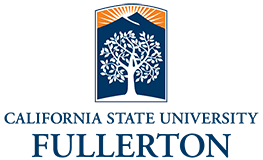
California State University-Fullerton offers a bachelor’s in economics program through the school’s Mihaylo College of Business and Economics. The 120-credit hour offering requires lower-division courses such as Principles of Macroeconomics, Managerial Accounting, and Business and Its Legal Environment. Upper-division requirements include Economic Research Methods, Advanced Business Communication, Business Analytics, and Introduction to Econometrics. An economics capstone and 15 units of upper-division electives are also required for completion of the degree. The WASC Senior College and University Commission has accredited Cal State- Fullerton to award this economics bachelor’s credential. U.S. News & World Report has recognized the school as a top national university and a top public school. It has also lauded its business programs for quality and excellence.
Net Price: $8,274
#37—Grove City College
Grove City, Pennsylvania
Bachelor of Economics
Website
Student to Faculty Ratio: 13:1
Undergraduate Enrollment: 2,373
SAT/ACT Score Requirement: Varies
Points: 13

Grove City College offers two bachelor’s in economics programs: a BA in Economics and a BS in Business Economics. Students enrolled in either program will be required to take economics core courses such as Economic Thought Since 1870, Foundations of Economics, and Introduction to Econometrics. Those enrolled in the Business Economics option will also fulfill a business core, including course titles like Global Business Issues, Legal Environment of Business, Business Policy and Strategy, and Business Computer Applications, for instance. Grove City College is accredited by the Middle States Commission on Higher Education to award these undergraduate economics degrees. U.S. News & World Report has recognized the school as one of the leading national liberal arts colleges in the United States.
Net Price: $21,187
#36—Western Michigan University
Kalamazoo, Michigan
Bachelor in Economics
Website
Student to Faculty Ratio: 17:1
Undergraduate Enrollment: 27,111
SAT/ACT Score Requirement: Varies
Points: 13

Western Michigan University offers three options for bachelor’s in economics students: a BS in Economics, a BA in Economics, and a BBA in Economics. Core requirements for economics majors include Exploring Economic Data, Principles of Microeconomics, and Econometrics. Additional classes in economics include Managerial Economics, The Economics of Medical Care, Sports Economics, and Mathematics for Economists. Western Michigan University is accredited by the Higher Learning Commission to award this bachelor of economics degree. U.S. News & World Report has named the school a leading national university.
Net Price: $17,936
#35—SUNY- Geneseo
Geneseo, New York
Bachelor of Economics
Website
Student to Faculty Ratio: 19:1
Undergraduate Enrollment: 8,667
SAT/ACT Score Requirement: Varies
Points: 13
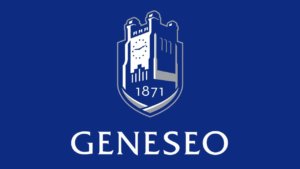
SUNY- Geneseo offers a bachelor of arts in economics degree from its prestigious School of Business. Basic requirements for the degree include course titles like Business Economic Statistics, Econometrics, Introductory Microeconomics, and Intermediate Macroeconomic Theory, for instance. Related requirements include classes such as Business Communication and Applied Calculus. The university also offers a minor in economics. SUNY College at Geneseo is accredited by the Middle States Commission on Higher Education to award this baccalaureate degree in economics. U.S. News & World Report has awarded the school numerous accolades, including top 15 placement in its ranking of best regional universities (North) and a #2 ranking in its list of top public schools nationwide.
Net Price: $17,673
#34—Kean University
Union, New Jersey
BA Economics
Website
Student to Faculty Ratio: 17:1
Undergraduate Enrollment: 11,984
SAT/ACT Score Requirement: Varies
Points: 13
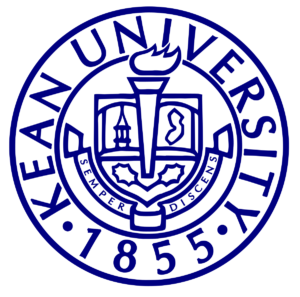
The bachelor of economics option from Kean University is offered through the school’s College of Business and Public Administration. This BA in Economics requires core courses such as Statistics for Business and Economics, Money and Banking, Econometrics, and Principles of Microeconomics. A minor in economics is also available as is a certification program in economics teaching. Students enrolled in the program benefit from hands-on learning experiences and internship opportunities. Kean University is accredited by the Middle States Commission on Higher Education to award this economics bachelor’s degree. U.S. News & World Report has identified the school as a leading regional university (North) and ranked it among the top 50 public schools nationwide.
Net Price: $17,067
#33—Sonoma State University
Rohnert Park, California
Bachelor of Arts in Economics
Website
Student to Faculty Ratio: 24:1
Undergraduate Enrollment: 8,667
SAT/ACT Score Requirement: Varies
Points: 13
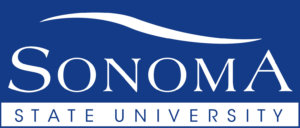
The economics bachelor’s degree program from Sonoma State University is a BA option offered through the university’s School of Business and Economics. Core requirements for the degree include Introduction to Econometrics, Statistics for Economics and Business, Microeconomic Theory, and Introduction to Macroeconomics. A minor in economics is available as are double major opportunities. The program prepares graduates for careers in insurance, sales management, education banking and finance, and more. Sonoma State University is accredited by the WASC Senior College and University Commission to award this undergraduate credential in economics. U.S. News & World Report has ranked the school among the top 65 regional universities in the West and the top 20 public schools nationwide.
Net Price: $16,119
#32—North Dakota State University
Fargo, North Dakota
Economics Bachelor’s Degree
Website
Student to Faculty Ratio: 20:1
Undergraduate Enrollment: 11,984
SAT/ACT Score Requirement: 1100/22
Points: 13

The economics bachelor’s degree program from North Dakota State University’s Department of Agribusiness and Applied Economics features tracks in both general economics and quantitative economics. Students can further customize their plan of study through the selection of electives. Sample course titles include Mathematics for Business, Principles of Microeconomics, Business Use of Computers, and Econometrics. NDSU is accredited by the Higher Learning Commission to award this undergraduate degree in economics. U.S. News & World Report has placed the school among the top national universities and the top public schools nationwide.
Net Price: $15,472
#31—Fitchburg State University
Fitchburg, Massachusetts
BA Economics
Website
Student to Faculty Ratio: 14:1
Undergraduate Enrollment: 4,117
SAT/ACT Score Requirement: 990-1180/19-24
Points: 13
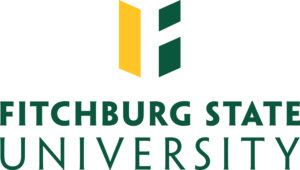
Fitchburg State University offers a bachelor’s in economics program with an optional concentration in International Business and Economics. This Bachelor of Science option includes required courses such as History of Economic Thought, Calculus for Business, Principles of Macroeconomics, and Business Statistics, for example. Students will also choose from elective offerings such as Urban Economics, Economics of Inequality, Basic Data Skills for Economics and Business, and U.S. Economics History. Internship and independent study opportunities are available. Fitchburg State is accredited by the New England Commission of Higher Education to award this bachelor of economics degree. U.S. News & World Report has recognized the school as a top regional university in the North and placed it among the 50 top public schools in the nation.
Net Price: $15,309
#30—Florida State University
Tallahassee, Florida
Bachelor’s in Economics
Website
Student to Faculty Ratio: 22:1
Undergraduate Enrollment: 33,008
SAT/ACT Score Requirement: Varies
Points: 13
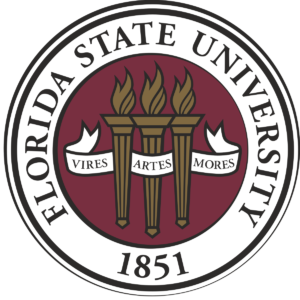
The bachelor of economics degree from Florida State University is offered through the College of Social Sciences and Public Policy. Core courses for the major include Analysis of Economic Data, Intermediate Microeconomic Theory, and Introduction to Econometrics. Students will also choose from elective offerings like Markets and Institutions, Resource and Environmental Economics, Public Sector Economics, and Economic Theory. A minor in economics is also available, and students also have the opportunity to select a second major. The Southern Association of Colleges and Schools Commission on Colleges has accredited FSU to award this economics bachelor’s credential. U.S. News & World Report has ranked the school among the top 75 national universities.
Net Price: $13,318
#29—Weber State University
Ogden, Utah
BS in Economics
Website
Student to Faculty Ratio: 21:1
Undergraduate Enrollment: 27,111
SAT/ACT Score Requirement: N/A
Points: 13

The bachelor of science in economics from Weber State University is offered through the AACSB-accredited John B. Goddard School of Business & Economics. The program emphasizes general economics, but a minor from the College of Behavioral and Social Sciences is required. Required courses include Principles of Microeconomics, Introduction to Research Methods, and Business Statistics, for example. Students will also choose from elective offerings such as Women in the World Economy, International Finance and Monetary Systems, Industrial Organization, and Public Finance. Weber State is accredited by the Northwest Commission on Colleges and Universities to award this undergraduate degree in economics. U.S. News & World Report has identified the school as a top regional university in the West.
Net Price: $10,951
#28—Florida International University
Miami, Florida
BA in Economics
Website
Student to Faculty Ratio: 27:1
Undergraduate Enrollment: 47,629
SAT/ACT Score Requirement: Varies
Points: 13

The economics bachelor’s degree option from Florida International University is a BA in Economics offered through the Steven J. Green School of International & Public Affairs and the Department of Economics. Lower-division preparation courses required for the degree include Principles of Macroeconomics, Introduction to Statistics, and Calculus for Business. The upper-division program is comprised of course titles like Measurement and Analysis of Economic Activity, Introduction to Econometrics, and Intermediate Microeconomics, for instance. Students will also be asked to fulfill 15 credit hours of major-specific electives. A combined BA/MA in Economics is also available. FIU is accredited by the Southern Association of Colleges and Schools Commission on Colleges to award this economics bachelor’s degree. U.S. News & World Report has identified the school as a top national university and ranked it among the top 100 public schools nationwide.
Net Price: $9,180
#27—Wright State University
Dayton, Ohio
Economics Bachelor’s Degree
Website
Student to Faculty Ratio: 14:1
Undergraduate Enrollment: 12,115
SAT/ACT Score Requirement: Varies
Points: 14

Wright State University offers two distinct options for bachelor’s economics students: a BS in Business with an emphasis in Economics and a BA in Economics. Requirements for the economics major include Introduction to Econometrics, Intermediate Microeconomics, and Institutional Economics, for instance. Students pursuing the BS in Business degree will take additional business courses such as Operations and Supply Chain Management, Business Ethics and Leadership Development, Economics of Global Money Markets, and Fundamentals of Information Systems. Dual bachelor’s and master’s degree options are also available. Wright State is accredited by The Higher Learning Commission to award these bachelor’s in economics credentials. U.S. News & World Report has placed the school among the top national universities in the United States.
Net Price: $14,136
#26—Midwestern State University
Wichita Falls, Texas
Economics BBA
Website
Student to Faculty Ratio: 18:1
Undergraduate Enrollment: 5,330
SAT Score Requirement: 1070-1180
Points: 14
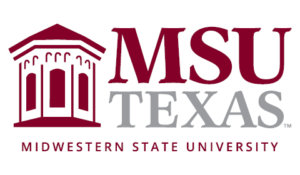
Midwestern State University offers a bachelor’s in economics program with an optional concentration in Agribusiness. Technically a BBA in Economics offered through the school’s Dillard College of Business Administration, the program features a 27-semester hour business core. Classes required for the core include Foundations of Business, Managerial Accounting, Information Technology Concepts for Business, and Math Analysis for Business. Students will also take additional courses such as Strategic Management, Intermediate Macroeconomics, and Management Information Systems. MSU is accredited by the Southern Association of Colleges and Schools Commission on Colleges, and the program itself is accredited by the AACSB. U.S. News & World Report has identified the school as a top 100 regional university in the West and placed it among the top 40 public schools in the nation.
Net Price: $10,395
#25—California State University—Sacramento
Sacramento, California
BA in Economics
Website
Student to Faculty Ratio: 26:1
Undergraduate Enrollment: 28,454
SAT/ACT Score Requirement: Varies
Points: 14
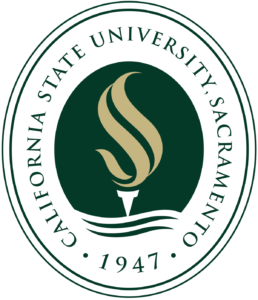
California State University—Sacramento offers a bachelor of economics degree program through its College of Social Sciences and Interdisciplinary Studies. This BA offering requires pre-major courses like Modern Business Mathematics, Introduction to Statistics, and Introduction to Macroeconomic Analysis. Students will also take upper-division classes such as Economic History of the United States, Quantitative Economic Analysis, and Economic Research Methods. The remaining economics curriculum consists of elective offerings like Economics of Racism and Women and the Economy, for example. Sacramento State is accredited by the WASC Senior College and University Commission to award this economics bachelor’s degree. U.S. News & World Report has recognized the school for its leading undergraduate business programs and identified it as among the top 75 regional universities in the West and the top 20 public schools in the country.
Net Price: $9,885
#24—Florida Atlantic University
Boca Raton, Florida
Bachelor’s in Economics
Website
Student to Faculty Ratio: 24:1
Undergraduate Enrollment: 25,030
SAT/ACT Score Requirement: Varies
Points: 14

Florida Atlantic University offers a bachelor of economics program with tracks in Business and General Economics. Both tracks require economics major courses like Managerial Economics, Introduction to Econometric Methods, and Intermediate Microeconomics. Students will also choose from elective classes such as Healthcare Economics and Policy, Mathematical Economics, Public Opinion and Research, and Industrial Economics, for example. Internship opportunities are also available. FAU is accredited by the Southern Association of Colleges and Schools Commission on Colleges to award this bachelor’s in economics credential. U.S. News & World Report has ranked the school among the top national universities for 2019.
Net Price: $9,486
#23—California State University—Long Beach
Long Beach, California
Bachelor’s in Economics
Website
Student to Faculty Ratio: 23:1
Undergraduate Enrollment: 31,586
SAT/ACT Score Requirement: Varies
Points: 14

The bachelor in economics offering from California State University- Long Beach is a 120-credit hour BA program. The curriculum for this undergraduate economics degree program consists of a lower-division core featuring classes like Principles of Microeconomics, Survey of Calculus, and Calculus for Business. Upper-division requirements include Economic Statistics, Microeconomic Theory, and Macroeconomic Theory. A minimum of six upper-division elective courses are also required for graduation. Cal State- Long Beach is accredited by the WASC Senior College and University Commission to award this bachelor of economics. U.S. News & World Report has identified the school as a top 30 regional university in the West and awarded it its #3 spot in its ranking of top public schools nationwide.
Net Price: $9,477
#22—Framingham State University
Framingham, Massachusetts
Bachelor’s in Economics
Website
Student to Faculty Ratio: 14:1
Undergraduate Enrollment: 33,008
SAT/ACT Score Requirement: Varies
Points: 14

The versatile bachelor of arts in economics from Framingham State University features tracks in both Business and Finance. The curriculum for the program requires seven specific courses, including classes in micro and macroeconomics, economic theories, economic tools, and more. A minor in economics is also available. Framingham State University is accredited by the New England Commission of Higher Education to award this degree. U.S. News & World Report has identified the school as a top regional university in the North and placed it among the top 40 public schools nationwide.
Net Price: $4,126
#21—University of Minnesota-Duluth
Duluth, Minnesota
Bachelor of Economics
Website
Student to Faculty Ratio: 18:1
Undergraduate Enrollment: 10,118
SAT/ACT Score Requirement: Varies
Points: 15
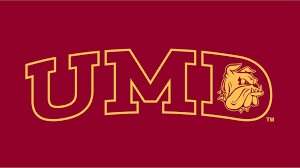
The University of Minnesota-Duluth offers both a BA in Economics and a BBA in Economics through its Labovitz School of Business and Economics. Major-specific courses required for the degree include Developmental Economics, Global Economic Issues, and Applied Statistics for Business and Economics, for instance. Students pursuing the BBA credential will also take core business classes like Principles of Marketing, Human Resource Management, Strategic Management, and Organizational Behavior and Management. The University of Minnesota- Duluth is accredited by the Higher Learning Commission, and the program itself is accredited by the AACSB. U.S. News & World Report has placed the school among the top 50 regional universities in the Midwest and the top 60 best value schools.
Net Price: $16,993
#20—St. Cloud State University
Saint Cloud, Minnesota
Bachelor’s in Economics
Website
Student to Faculty Ratio: 21:1
Undergraduate Enrollment: 13,128
SAT/ACT Score Requirement: Varies
Points: 15

Saint Cloud State University offers three bachelor of economics degree programs from its School of Public Affairs: a BA in Economics, a BA in Business Economics, and a BS in Mathematical Economics. These offerings feature small class sizes and flexible scheduling options, with some classes available online. For interested students, there are also paid internship opportunities. Graduates of these bachelor’s in economics degree programs are prepared for careers as researchers, project administrators, market research analysts, compensation managers, and more. St. Cloud State University is accredited by the Higher Learning Commission to award these undergraduate economics credentials. U.S. News & World Report has identified the school as a top regional university (Midwest) and ranked it among the top 40 public schools in the nation.
Net Price: $13,816
#19—North Carolina A&T State University
Greensboro, North Carolina
Economics Bachelor’s
Student to Faculty Ratio: 18:1
Undergraduate Enrollment: 10,341
SAT/ACT Score Requirement: Varies
Points: 15

North Carolina A&T State University offers a bachelor of economics degree program with optional concentrations in Business and Law. Despite their choice of concentration, all economics majors will take core classes in the discipline like Money and Banking, International Economics, and Introduction to Econometrics, for example. Students in the Law concentration will take additional courses in Business Law, Law and Philosophy, and Legal Environment of Business. Alternatively, those in the Business concentration will study Management Science, Marketing Concepts, and Business Reports and Presentations. An economics seminar/capstone is also required. The Southern Association of Colleges and Schools Commission on Colleges has accredited North Carolina A&T State to award the bachelor of economics degree. U.S. News & World Report has identified the school as a top national university and ranked it among the top 10 historically black colleges and universities in the country.
Net Price: $9,378
#18—California State University—San Bernardino
San Bernardino, California
Bachelor of Arts in Economics
Website
Student to Faculty Ratio: 30:1
Undergraduate Enrollment: 18,327
SAT/ACT Score Requirement: Varies
Points: 15
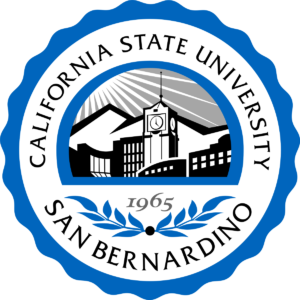
The BA in Economics from California State University- San Bernardino is offered through the school’s College of Social and Behavioral Sciences and the Department of Economics. The comprehensive 180-unit program consists of required courses such as Applied Business Statistics, Statistics for Economists, Basic Concepts of Calculus, and Principles of Microeconomics. Upper-division classes include titles like Multinational Corporations, Economics of the Environment, Tools of Economic Analysis, and Public Economics. The WASC Senior College and University Commission has accredited Cal State- San Bernardino to award this bachelor’s credential in economics. The school has been awarded a number of accolades from U.S. News & World Report, including top placement in its rankings of top regional universities (West), best value schools, and top public schools.
Net Price: $8,586
#17—California State University—Northridge
Northridge, California
Economics BA
Website
Student to Faculty Ratio: 26:1
Undergraduate Enrollment: 35,839
SAT/ACT Score Requirement: Varies
Points: 15

The bachelor of arts in economics degree program from California State University- Northridge is offered through the David Nazarian College of Business and Economics. The curriculum for the program requires lower-division courses such as Mathematical Models for Business, Information System for Business Users, and Statistics for Business and Economics. Upper-division classes include The Use and Interpretation of Economic Data, Macroeconomic Theory, and Price Theory and Applications, for instance. Double major opportunities are available. The WASC Senior College and University Commission has accredited Cal State- Northridge to award this undergraduate economics degree. The school has been recognized by U.S. News & World Report as a top 75 regional university (West) and a top 25 public school nationwide.
Net Price: $8,549
#16—California State University—Fresno
Fresno, California
BA in Economics
Website
Student to Faculty Ratio: 23:1
Undergraduate Enrollment: 22,261
SAT/ACT Score Requirement: Varies
Points: 15
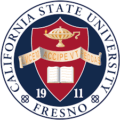
California State University—Fresno offers a robust 120-credit hour BA in Economics program from its Craig School of Business and the Department of Economics. Students enrolled in the program are required to take major-specific courses such as Macroeconomics & International Economics, Historical & Political Economics, and Microeconomics, for example. Additional course offerings include History of Economic Thought, Economic Development of Poor Nations, and Money and Banking. Minors in Economics and International Political Economy are also available as are double major opportunities. The WASC Senior College and University Commission has accredited Fresno State to award this bachelor’s in economics. U.S. News & World Report has recognized the university as a top public school and a leading national university.
Net Price: $6,771
#15—College of Staten Island
Staten Island, New York
BS in Economics
Website
Student to Faculty Ratio: 18:1
Undergraduate Enrollment: 12,509
SAT/ACT Score Requirement: N/A
Points: 15

The economics bachelor’s degree program from the CUNY-College of Staten Island features specializations in both Business and Finance. Offered through the college’s newly christened Lucille and Jay Chazanoff School of Business, a status voted on by the CUNY Board of Trustees in 2019, and Department of Economics, the program requires major courses such as Introduction to Econometrics and Introduction to Economic and Managerial Statistics. Students who opt for the Business specialization will take additional classes like Organizational Theory and Management, Managerial Finance, and Introduction to Accounting. Those in the Finance specialization will study International Finance, Advanced Corporate Finance, and Managerial Economics. An Honors track is also available. The College of Staten Island is accredited by the Middle States Commission on Higher Education to award this bachelor’s economics degree. U.S. News & World Report has identified the College of Staten Island as one of the leading regional universities in the North.
Net Price: $6,761
#14—California State University—Bakersfield
Bakersfield, California
Bachelor of Science in Economics
Website
Student to Faculty Ratio: 24:1
Undergraduate Enrollment: 8,814
SAT/ACT Score Requirement: Varies
Points: 15
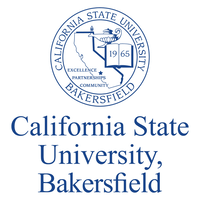
California State University- Bakersfield’s bachelor’s in economics degree program is offered through the university’s School of Business and Public Administration. Sample course titles required for the degree include Economic Way of Thinking, Analyzing Economic Data, Quantitative Tools for Economists, and Contemporary Economic Issues. Opportunities for internships, cooperative education experiences, and individual study are also available. The university also offers a BBA in Economics and a minor in economics. Cal State- Bakersfield is accredited by the WASC Senior College and University Commission to award this degree. U.S. News & World Report has ranked the school among the top 100 regional universities in the West and the top 40 public schools nationwide.
Net Price: $6,025
#13—San Francisco State University
San Francisco, California
BA in Economics
Website
Student to Faculty Ratio: 23:1
Undergraduate Enrollment: 26,680
SAT/ACT Score Requirement: Varies
Points: 16
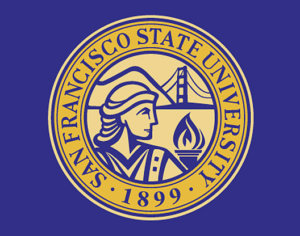
The bachelor’s economics degree program from San Francisco State University is a comprehensive BA program. The program’s basic curriculum features core courses such as Introduction to Macroeconomic Analysis, Statistical Methods and Interpretation, and Introduction to Econometrics, for example. Advanced courses in economics include History of Labor in the United States, Health Economics, Collective Bargaining, and Economics of Poverty and Discrimination. The university also offers a minor in economics. Students have the opportunity to focus their studies in various areas of concentration, including Law and Economics, Urban Issues, Labor Issues, and more. A separate track is also available for students who plan to pursue graduate studies in economics. San Francisco State is accredited by the WASC Senior College and University Commission to award this undergraduate degree in economics. U.S. News & World Report has named the school a top national university.
Net Price: $14,964
#12—California State University-Chico
Chico, California
Bachelor of Arts in Economics
Website
Student to Faculty Ratio: 25:1
Undergraduate Enrollment: 16,710
SAT/ACT Score Requirement: Varies
Points: 16
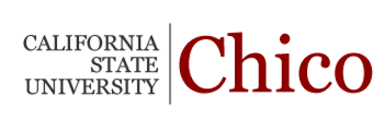
The bachelor of economics from California State University-Chico is a 120-credit hour BA program. Major core courses required for the degree include Economic Statistics, Microeconomic Analysis, and Principles of Macroeconomic Analysis. Elective offerings include Issues in Global Environment and Development, International Economics, Theory of Money, and Economic Forecasting. An Honors track in Economics is also available as are double major opportunities. The WASC Senior College and University Commission has accredited Cal State- Chico to award this bachelor’s degree in economics. U.S. News & World Report has ranked the university among the top 45 regional universities in the West and the top 10 public schools nationwide.
Net Price: $14,156
#11—Brigham Young University—Provo
Provo, Utah
Bachelor of Economics
Website
Student to Faculty Ratio: 20:1
Undergraduate Enrollment: 31,233
SAT/ACT Score Requirement: N/A
Points: 16
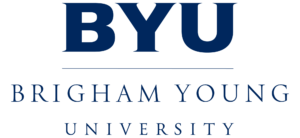
The bachelor of economics program from Brigham Young University- Provo is offered through the school’s Department of Family, Home, and Social Sciences. Students enrolled in the program will take core classes such as Economic Principles and Problems, Intermediate Price Theory, and Statistics for Economists, for example. Additional course titles include Economics of Education, Game Theory and Economics, International Trade Theory and Applications, and Natural Resources and Environmental Economics. A Career Preparation Seminar is also recommended. Graduates of the program are well-prepared for graduate study or careers in finance, law, business, public policy, and more. The Northwest Commission on Colleges and Universities has accredited BYU- Provo to award this bachelor’s in economics degree. U.S. News & World Report has named the school a top 75 national university and a top 15 best value school.
Net Price: $13,120
#10—California State University-Stanislaus
Turlock, California
BA in Applied Economics: Agricultural Economics
Website
Student to Faculty Ratio: 22:1
Undergraduate Enrollment: 9,057
SAT/ACT Score Requirement: Varies
Points: 16
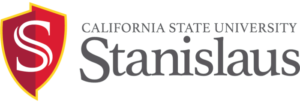
The unique bachelor’s in economics program from California State University-Stanislaus is a BA in Applied Economics offering with a concentration in Agricultural Economics. Core courses required for the degree include Geographic Information Systems, Sustainable Agriculture, and Economics and Agriculture. Students will also take concentration-specific classes like Agricultural Finance, Farm Management, Agricultural Markets and Pricing, and Natural Resources and Environmental Economics. A capstone course in agribusiness entrepreneurship or research methods in agriculture is also required. Independent study and internship opportunities are also available. The WASC Senior College and University Commission has accredited Cal State- Stanislaus to award this bachelor of economics degree. U.S. News & World Report has recognized the school as a top 50 regional university in the West as well as a top 10 national public school.
Net Price: $6,930
#9—California State University—Los Angeles
Los Angeles, California
Bachelor’s in Economics
Website
Student to Faculty Ratio: 25:1
Undergraduate Enrollment: 24,818
SAT/ACT Score Requirement: Varies
Points: 16
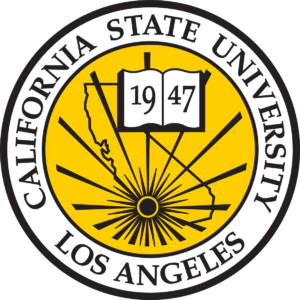
The bachelor of economics program from California State University- Los Angeles features tracks in Applied Economics and Social and Behavioral Sciences. Offered through the school’s Department of Economics and Statistics, the program features required core courses such as Money, Banking, and the Economy; Applied Business and Economic Statistics; and Data Analysis, Reporting, and Presentation. Depending on the specific track they choose to pursue, students will also take additional classes like Mathematical Economics, Applied Economic and Business Forecasting, Urban and Regional Economics, and Issues in the Economics of Globalization. The university also offers a minor in economics as well as a BSBA in Economics program. Cal State- Los Angeles is accredited by the WASC Senior College and University Commission to award this degree in economics. U.S. News & World Report has recognized the school as one of the top 55 regional universities in the West and a top 30 best value school.
Net Price: $4,403
#8—San Jose State University
San Francisco, California
Bachelor’s in Economics
Website
Student to Faculty Ratio: 27:1
Undergraduate Enrollment: 27,778
SAT/ACT Score Requirement: Varies
Points: 17

San Jose State University offers an elective-rich bachelor of economics program with both BA and BS tracks. Core courses required for the major include Principles of Economics: Microeconomics, Economic Statistics, History of Economic Thought, and Macroeconomic Analysis. Students have the opportunity to customize their plans of study through the selection of over 20 units of electives. A minor in economics is also available through the College of Social Sciences and the Department of Economics. Some courses are available online. The WASC Senior College and University Commission has accredited San Jose State to award the bachelor’s in economics credential. U.S. News & World Report has recognized the school as a top 35 regional university in the West and ranked it among the top 55 best value schools.
Net Price: $14,519
#7—University of Wisconsin-Eau Claire
Eau Claire, Wisconsin
Bachelor’s in Economics
Website
Student to Faculty Ratio: 23:1
Undergraduate Enrollment: 16,194
SAT/ACT Score Requirement: Varies
Points: 17
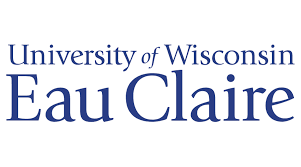
The University of Wisconsin-Eau Claire offers three different bachelor of economics degree programs: a business economics degree, a liberal arts economics degree, and an economics teaching degree. The liberal arts and teaching options are also available as minor programs. Sample course titles in economics include History of Economic Thought, Essentials of Managerial Economics, Elements of Mathematical Economics, and Business Fluctuations and Forecasting, for example. UW- Eau Claire is accredited by The Higher Learning Commission to offer these undergraduate economics degrees. U.S. News & World Report has awarded the school a number of top accolades, including top 40 placement in its ranking of top 40 regional universities in the Midwest and top 5 placement in its ranking of top public schools.
Net Price: $13,940
#6—CUNY City College
New York, New York
Bachelor’s in Economics
Website
Student to Faculty Ratio: 14:1
Undergraduate Enrollment: 13,210
SAT Score Requirement: 1080
Points: 17
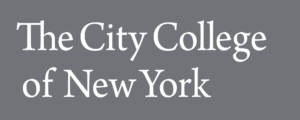
CUNY City College offers a bachelor’s in economics program from its Colin Powell School for Civic and Global Leadership and the Department of Economics and Business. Students enrolled in the degree program will take primary and major core courses such as Principles of Management, Microeconomic Theory, and Principles of Statistics, for instance. The remainder of the curriculum consists of additional field courses like Public Finance, Environmental Economics and Sustainability, International Finance, and Law and Economics. A minor in economics is also available. CUNY City College is accredited by the Middle States Commission on Higher Education to award this undergraduate degree in economics. The school has received a number of accolades from U.S. News & World Report, including recognition as a top 60 regional universities in the North and a top 15 public school.
Net Price: $4,674
#5—CUNY Hunter College
New York, New York
Economics BA
Website
Student to Faculty Ratio: 12:1
Undergraduate Enrollment: 16,844
SAT/ACT Score Requirement: N/A
Points: 17
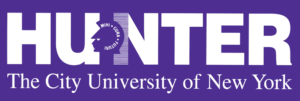
CUNY Hunter College offers a BA in Economics. The curriculum for the program features basic and intermediate core courses such as Econometrics, Calculus for the Life and Social Sciences, and Statistics, for example. Students will also choose from elective offerings like Security and Investment Analysis, Women and Men in the Labor Market, Comparative Economic Systems, and International Finance. An economics minor, honors track, and BA/MA program are also available. The Middle States Commission on Higher Education has accredited Hunter College to award this bachelor of arts in economics degree. U.S. News & World Report has recognized the school as a top 25 regional university in the North as well as a top 70 best value school. The publication has also ranked Hunter College among the top 10 public schools in the nation.
Net Price: $4,332
#4—University of South Florida
Tampa, Florida
Bachelor’s in Economics
Website
Student to Faculty Ratio: 22:1
Undergraduate Enrollment: 31,772
SAT/ACT Score Requirement: Varies
Points: 18
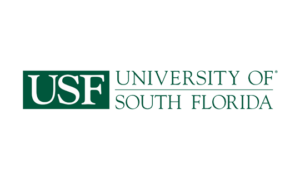
The University of South Florida offers two bachelor of economics degree programs from its College of Arts and Sciences: a BA in Economics and a BS in Quantitative Economics and Econometrics. Students can choose to customize their program further by choosing an area of specialization such as Microeconomics; Macroeconomics; Marketing and Retail; Entrepreneurship, Business, Banking, and Finance; Development; Industrial Organization; and more. Graduates of the program go on to have successful careers in finance, transportation, healthcare, law, and more. The Southern Association of Colleges and Schools Commission on Colleges has accredited USF to award this baccalaureate degree in economics. U.S. News & World Report has recognized the school as a top national university and ranked it among the top 75 best value schools in the nation.
Net Price: $10,460
#3—Brigham Young University—Idaho
Rexburg, Idaho
Economics Bachelor’s Degree
Website
Student to Faculty Ratio: 25:1
Undergraduate Enrollment: 51,881
SAT/ACT Score Requirement: 1090/24
Points: 18
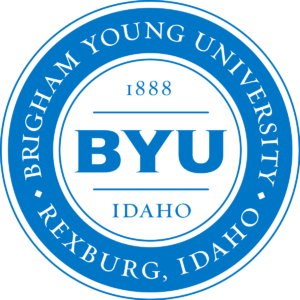
The versatile bachelor of economics program from Brigham Young University- Idaho features six concentration options, including a Pre-Law, Pre-MBA, and Agriculture track. The curriculum for the program is comprised of major core courses such as Introduction to Econometrics, Intermediate Macroeconomics, and Intermediate Microeconomics, for instance. Students will also take more advanced economics classes like Labor Economics, International Economics, Investment Analysis, and Money and Banking. Students must fulfill a total of 120 credit hours of coursework prior to graduation. Brigham Young University- Idaho is accredited by the Northwest Commission on Colleges and Universities to award this degree. U.S. News & World Report has ranked BYU- Idaho among the top 20 regional colleges in the West.
Net Price: $7,555
#2—CUNY Bernard M. Baruch College
New York, New York
BA in Economics
Website
Student to Faculty Ratio: 19:1
Undergraduate Enrollment: 15,253
SAT/ACT Score Requirement: N/A
Points: 18
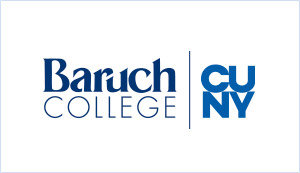
CUNY Bernard M. Baruch College offers its bachelor of economics degree from the Zicklin School of Business and the Bert W. Wasserman Department of Economics & Finance. This Bachelor of Arts program requires major courses such as Statistical Analysis for Economics and Finance, Intermediate Microeconomics, and Intermediate Macroeconomics. Students will choose from additional elective classes like International Economics and Finance, Urban Economic Structure, Industrial Organization and Public Policy, and Principles of Public Finance. A minor in economics and finance is also available. Baruch College is accredited by the Middle States Commission on Higher Education to award this economics bachelor’s degree. U.S. News & World Report has placed the school among the top 20 regional universities in the North and recognized it as a top 75 best value school.
Net Price: $4,119
#1—California State Polytechnic University-Pomona
Pomona, California
Economics BS
Website
Student to Faculty Ratio: 29:1
Undergraduate Enrollment: 24,319
SAT/ACT Score Requirement: N/A
Points: 19
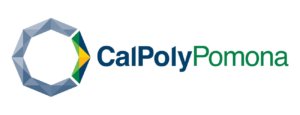
California State Polytechnic University-Pomona offers a BS in Economics with concentration options in international, financial, environmental, labor, and quantitative economics. Core courses required for the degree include Economic Statistics, History of Economic Thought, Principles of Economics, and Intermediate Macroeconomic Theory. Additional classes include Analytical Geometry and Calculus, Distribution of Income, Introduction to Econometrics, and Advanced Economics. Cal State Poly Pomona is accredited by the WASC Senior College and University Commission to award this economics bachelor’s degree. U.S. News & World Report has identified the school as a top 30 regional universities in the West and a top 60 best value school.
Net Price: $12,744
About Bachelor’s Degree in Economics Programs
Overview
Bachelor’s degree programs in economics are typically four-year undergraduate programs. These programs often have a liberal arts focus, but sometimes, they are more business-focused.
Bachelor’s degree programs in economics generally require 120 credit hours of coursework. This will include general education classes as well as major-specific courses related to economics. Some programs offer optional concentrations as well. Students who elect a concentration will take additional classes related to their chosen sub-field.
Economics Bachelor’s Degree Programs: Admissions
Admissions requirements for bachelor’s degree programs in economics are comparable to those associated with most other undergraduate degree programs. At a minimum, you’ll need a high school diploma and test scores like SAT or ACT scores.
Some programs are more competitive than others, and each school and program will have its own method of evaluating readiness indicators like GPA and standardized test scores. Increasingly, schools are looking at ACT and SAT scores in combination with other indicators as opposed to in isolation. This means that you may be able to get into a program with a lower score so long as other parts of your application, such as your GPA for instance, are strong.
In addition to a high school diploma and standardized test scores, you may be asked to submit other documents such as a personal essay and letters of recommendation, for example. These application attachments will help the admissions committee get to know you better as an applicant and develop an understanding of what you hope to accomplish in a bachelor of economics program.
Bachelor’s in Economics Degree Concentrations
Many bachelor’s degree in economics programs give students the opportunity to customize their studies through the selection of a concentration or area of emphasis. These specialization options can be quite helpful, especially if you already know you want to work in a specific sub-field of economics.
Business Economics
The sub-discipline of business economics trains students to apply economic theory to real-world business scenarios. If you have dreams of working in the corporate world, then a concentration in business economics may be for you. Course titles you’re likely to see on your degree plan include:
- Business Cycles & Growth
- Strategic Management & Business Policy
- Legal Environment of Business
Actuarial Science
A bachelor’s in economics program with a concentration in Actuarial Science teaches students how to effectively analyze risk. Graduates of this type of program usually go on to work in the insurance or finance industry. Course titles comprising the curriculum for a Bachelor’s in Economics with a specialization in Actuarial Science include:
- Statistics for Risk Modeling
- Actuarial Financial Markets
- Data Analysis for Statisticians and Actuaries
Behavioral Economics
The behavioral economics concentration within a bachelor of economics degree program combines the study of economics with the study of behavioral sciences such as psychology and sociology. Students enrolled in such a program will learn the behavioral motives behind economic decisions on both a personal and institutional basis. Course titles may include:
- Applied Econometrics
- Psychological Statistics and Methodology
- Game Theory
International Economics
A bachelor’s in economics with a concentration in International Economics puts the study of economics into a global perspective. Students enrolled in a program of this kind will learn about international trade, diplomacy, and global finance, for instance. Sample course titles include:
- International Trade: Theory and Policy
- Global Financial Markets
- Economy of Developing Countries
Public Policy
The public policy concentration is ideal for bachelor’s economics students who wish to apply their knowledge of economics to public and community service or government affairs. The curriculum for a program of this kind will feature classes like the following:
- Economics of the Public Sector
- Seminar in Policy Analysis
- Business & Public Policy
Financial Economics
Students interested in both economics and finance will find the perfect combination in a Bachelor of Economics program with a concentration in Financial Economics. Such a degree plan will prepare students for roles as lending officers, investment managers, portfolio managers, and more. Courses one may encounter in this concentration include:
- Theory of Financial Markets
- Investment Management
- Venture Capital Markets
Frequently-Asked Questions About Economics Bachelor’s Degree Programs
Below you will find some general questions and answers related to bachelor in economics degree programs. If you have a specific question related to a particular program or school, it is best to direct it to an admissions counselor.
Q: How long does it take to earn a bachelor of economics degree?
A: Completion times vary, but typically, a bachelor’s in economics degree requires four years of full-time study.
Q: How much does an economics bachelor’s program cost?
A: Tuition costs vary widely from program to program, but it is possible to find an affordable bachelor’s in economics program for less than $10,000 per year.
Q: Can I earn my bachelor of economics degree online?
A: Yes. Online bachelor’s in economics programs are available as are hybrid offerings.
Q: What will I study as a bachelor’s in economics student?
A: Once you fulfill the general education requirements for your undergraduate degree, you will take classes directly related to the economics major such as microeconomics, macroeconomics, statistics, calculus for economics majors, economic development, and more.
Most Frequently Searched Bachelor of Economics Programs
Florida International University-Bachelor of Arts in Economics: FIU offers a BA in Economics from its Steven J. Green School of International & Public Affairs. The program prepares graduates for master’s-level study as well as for entry-level careers in economics.
Harvard University-Bachelor of Economics: The bachelor’s degree program in economics is one of the largest undergraduate majors offered by the university. Options for independent study are available.
Loyola Marymount University-Bachelor’s in Economics: LMU offers a robust bachelor’s in economics degree program from its Bellamine College of Liberal Arts. BA and BS tracks are available as is a minor in economics.
University of Kansas-Economics Bachelor’s Degree: The University of Kansas offers three different bachelor of economics programs: a Bachelor of Science (BS) in Economics, a Bachelor of Arts (BA) in Economics, and a Bachelor of General Studies (BGS) in Economics. An honors program is also available.
Massachusetts Institute of Technology-Bachelor of Economics: The bachelor of economics degree program from MIT emphasizes undergraduate research in economics. Graduates of the program are well prepared for entry-level roles in the field or for graduate study in economics, business, or law.
New York University-Bachelor’s in Economics: New York University offers a bachelor’s in economics degree from its Stern School of Business. The program is highly selective and features study abroad opportunities.
Career Questions About Bachelor’s in Economics Degrees
Q: What can I do with a bachelor’s in economics degree?
A: There are many positions available for those individuals with a bachelor of economics credential. Some of these include economic consultants, actuaries, auditors, investment analysts, market research analysts, and more.
Q: How much will I make with a bachelor of economics credential?
A: The average salary for graduates of a BA in economics program is $71,000 according to Payscale.com. Your actual salary will vary depending upon several different factors, including your specific employer and job title, for instance.
Q: Are jobs for professionals with an economics bachelor’s degree in demand?
A: Yes. Jobs for economists are growing at a steady rate according to the Bureau of Labor Statistics (BLS). Related occupations such as actuaries are growing faster than average.
Q: What professional organizations exist for those with a bachelor in economics?
A: There are numerous professional organizations and associations open to those with a bachelor of economics credential. Some of these are listed below:
- Society for the Advancement of Economic Theory
- American Economic Association
- National Association for Business Economics
- National Economic Association
